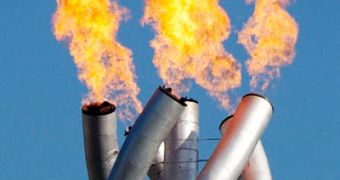High-level sports competitions are occasions on which, theoretically, only the best of the best should gather to match their skills against others. But, in some cases, a few of these athletes “enhance” their performance by nefarious means, such as illegal substances. It is the job of doping officials and chemists to catch wind of this, and expose those who attempt to fraud the competitions. Such will be the case at the Vancouver 2010 Winter Olympics, as well as at the Paralympic Winter Games, which take place this month, in Canada, Chemistry World reports.
While some may think that doping is a new invention that came about with the advent of certain substances, this is completely inaccurate. Even the Ancient Greeks attempted to cheat the competitions, although they did so by sticking to very special diets, and by consuming various potions that were said to help improve their athletic prowess. But, since those days, using forbidden substances to gain unfair advantages has become a lot more complex and subversive. Since the 1970s, authorities organizing high-end sports events started introducing anti-doping tests that have remained in place ever since.
Today, there are a wide variety of tests and methodologies used in specialized doping laboratories around the world, which are aimed solely at discovering the myriad of compounds that may increase an athlete's performance in a manner that disadvantages the others. However, unlike in the ancient times, the substances cheaters use today are a lot more subtle, and extremely difficult to detect. According to Canadian National Institute of Scientific Research doping expert Christiane Ayotte, the rang of drugs being abused is not likely to disappear any time soon.
The scientist, who will be conducting the anti-doping efforts during these Winter Games, says that the same substances that were forbidden decades ago continue to appear in urine samples taken from cheating athletes even today. However, new chemicals are added to this roaster constantly. “There is a basic arsenal to which more and more substances are being added but no drug is disappearing, except perhaps the narcotics,” she reveals.
Experts say that anabolic steroids had been the drug of choice for a long time. More recently, the hormone testosterone, and the chemical erythropoietin (EPO) began to take center-stage. “They are 'the two mainstay drugs and have been for 30 years. With EPO, you can deliver more oxygen to the cells and get better performance. That cuts across all fields of sports. Testosterone, being the main androgen for men and women, is a powerful drug, and if you can figure out a way to get it into [your] system and not trip the alarms, you can be a winner,” anti-doping testing pioneer Don Catlin, who is also the founder of Anti-Doping Research, a non-profit organization, says.

 14 DAY TRIAL //
14 DAY TRIAL //